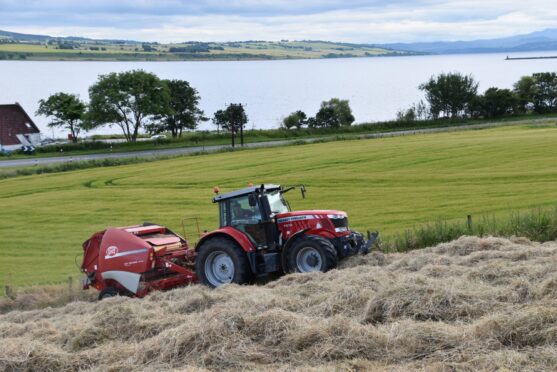Agricultural contractors could be at risk of fines from HRMC due to not paying the plastic packaging tax (PPT), with many unaware they are liable for it.
The tax applies to manufacturers or importers to the UK of more than 10 tonnes a year of baler twine or net wrap – deemed by HMRC to be ‘packaging’.
The £210.82 per tonne tax adds about £4.20 to the cost of a 20kg pack of heavy twine and about £6.50 to a 3,000m roll of net wrap.
At present, only three companies which fall into this bracket are registered with HMRC and pay the tax due, according to Graham Robson, technical manager at farm solutions firm Tama UK.
He reckons all the other companies either refuse to recognise it, feel they are not liable for it or refuse to pay it.
“Worse still, some of these companies are actively advising their customers that such a tax is not required for the baler twine and net wrap they are selling them,” said Mr Robson,
“It could make their customers liable for the unpaid tax and secondly, creates an uneven playing field for companies selling these products.”
He also argued that many merchants or contractors, buying via a self-employed ‘agent’ on behalf of a manufacturer, are totally unaware of their responsibility and legal deputy to pay the tax.
“Similarly, large-scale baling contractors can easily order quantities of twine exceeding 10 tonnes in one season, making them, the end user, directly liable,” he added.
Steve Price, head of agriculture at Zeus Packaging, says his company is paying all the tax demanded under the PPT and has spoken to HMRC to clarify what is required.
He said: “Our understanding is that the tax covers net wrap and baler twine which are used for carriage and transportation; plastic used for fermentation like silage pit covers and bale wrap are exempt.”
Meanwhile, Robert Thornborrow, of Krone, who is paying it, said: “It has not been made clear – I found out about it from a dealer.
“The clarity and guidelines relating to the tax we found vague. The reasoning behind it and how it is being implemented are not clear. I have seen nothing public on this tax anywhere, or the implications for pricing.
“We will pay it because we have to, but the farming community needs to be aware that it is another tax on a product they will buy.
“Companies not paying the tax are running a risk. Other companies that rely more than us on these products will be taking exception to it.”
